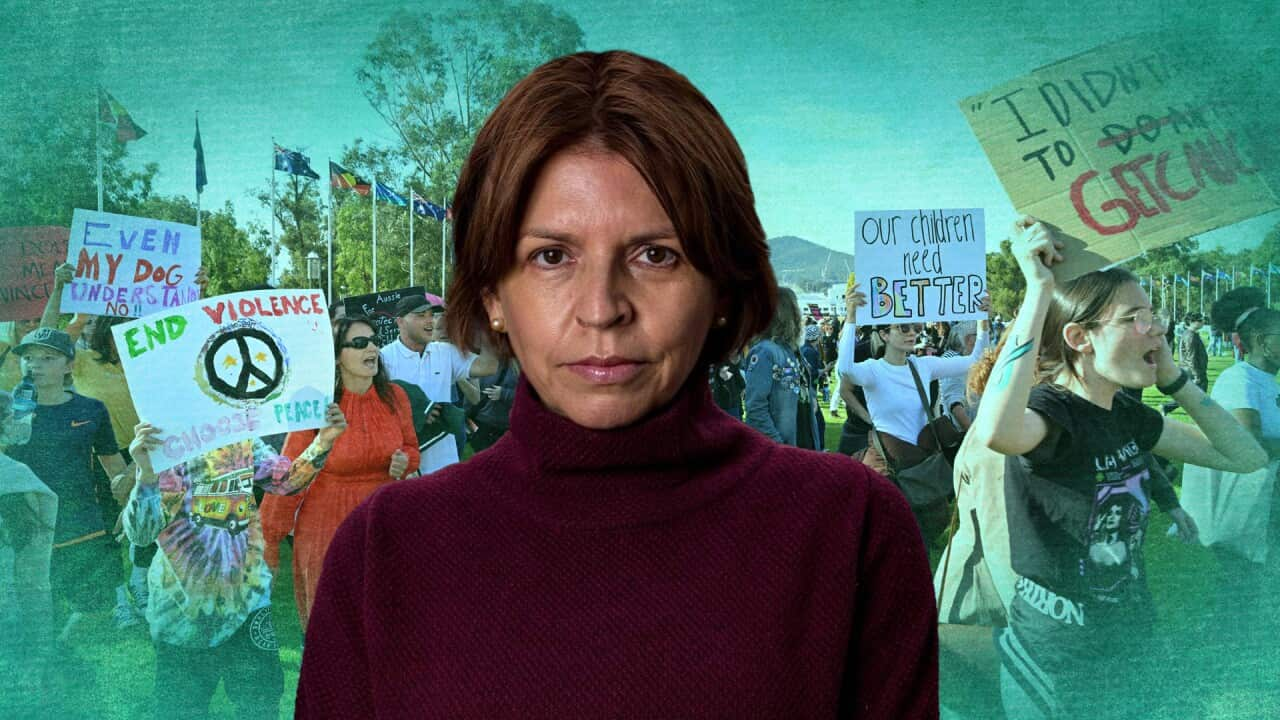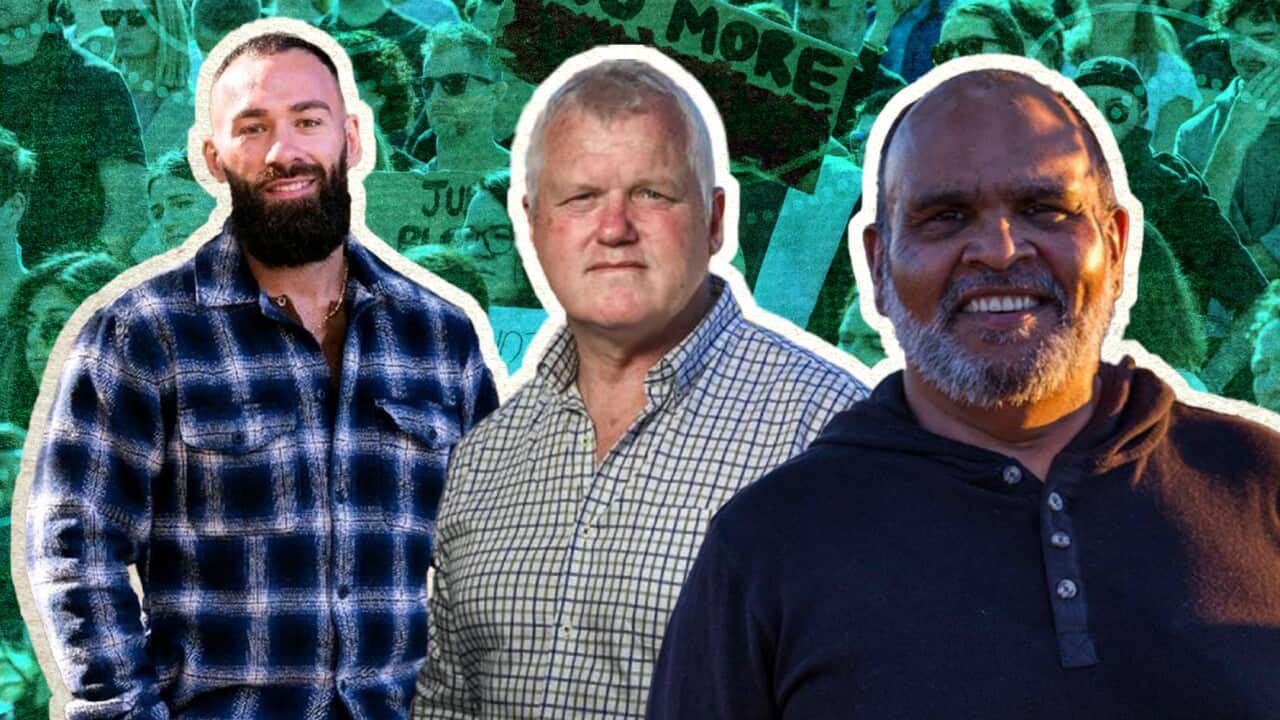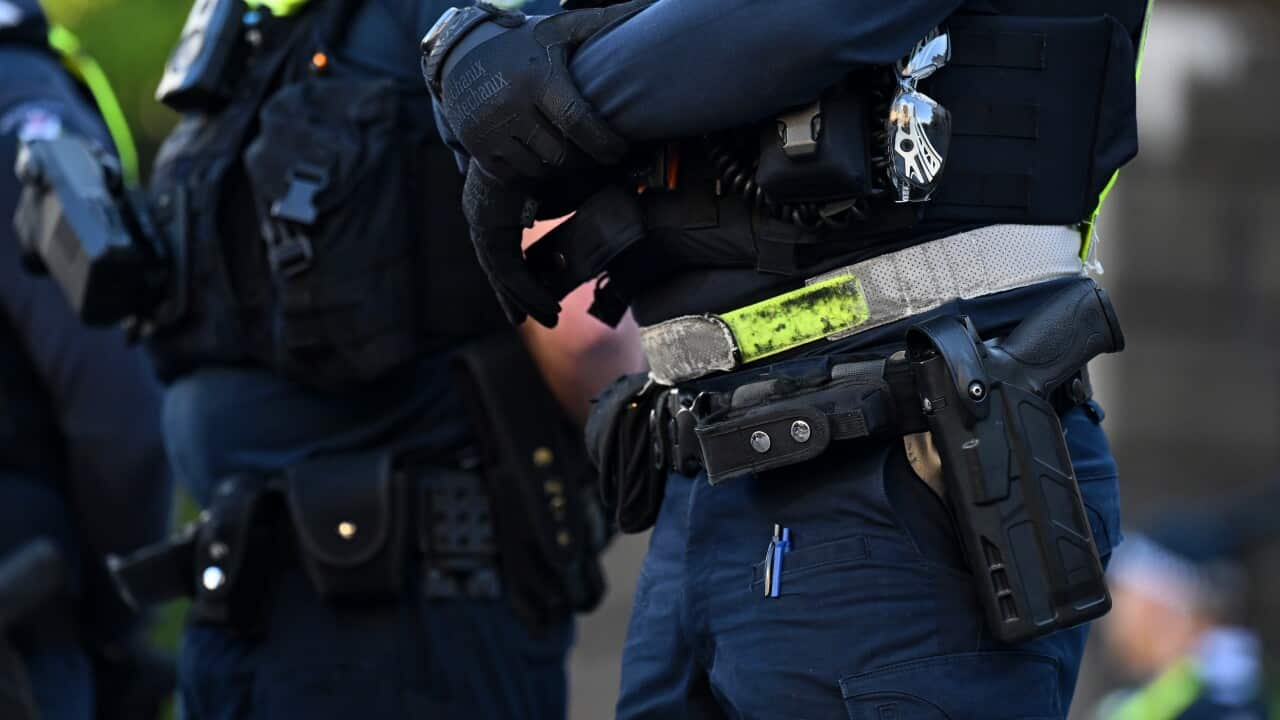WARNING: this article discusses themes that may be distressing to some readers.
A Townsville-based legal service is educating First Nations girls and women on the dangers of domestic and family violence.
The First Nations Women's Legal Services Queensland (FNWLSQ) are delivering workshops in schools on recognising early signs of potential violence, and empowering people with the tools to break out of a bad relationship.
Paralegal Naomi Craigie says they have had positive responses from the young women so far.
"Some of them have come out and said, 'I didn't know that was domestic violence,'" the Kalkadoon woman told NITV.
"Not only the young girls, it's the older, adult ladies as well that will come and say [that]."
Senior solicitor at FNWLSQ Sunday Wedel says that early education is critical, with many young women beginning unhealthy relationships at school which can continue throughout their lives.
"[It] might be their first relationship, their first experience with what a relationship is like," she told NITV.
"I think the crucial age for the education [of] those young women is really important."
Data show many women's first experience of domestic violence occurs during childhood, and that those cycles are difficult to break.
"So that there can be that education [and] empowerment in the hopes of an improved situation and outcomes for them as well," said Ms Wedel.
Whilst the service are only delivering to girls and women at the moment, they are working to develop a program for boys and men, which is considered a vital part of the equation.
What do the workshops look like?
The workshops are delivered through yarning circles.
They involve role play and empowerment exercises on young women's right to feel safe, trusting their instincts, health and wellbeing matters, building safety plans and where they can access help.
Ms Craigie says they aim to provide an open and culturally safe environment in which to learn about what a healthy relationship does, and does not, look like.
"So even someone calling their phone 100 times, they might think, 'Oh, he loves me', but really, it's coercive," she said.
The echoes of colonial violence
Aunty Florence Onus is the Community Development Worker and Cultural Advisor at FNWLSQ, and the driver of the program.
She says the workshops are anchored in the historical context of the country's violent colonial foundations.
To begin to understand the disproportionate figures of DFV in community, Aunty Florence says that unpacking the role of intergenerational trauma is key.
"From the invasion to now ... over 200 years, we still suffer layer upon layer upon layer, generation to generation, of colonisation and systemic oppression," the Birri Gubba Bindal woman said.
"Forced removal of our kids has never stopped right up till now.
"So these are contributing factors ... to the levels of domestic and family violence that we're experiencing."
What are they seeing at the coalface?
Anecdotally, the legal service says that DFV is prevalent in around 90 per cent of the cases they take on.
A common theme that they are seeing is that women aren't wanting to engage police with concerns about their safety as they feel they aren't being believed or taken seriously by police.
Solicitor Serrina Kenny, a Wiradjuri, Dhungutti, Yuin woman, says that not enough is being done.
"[In some of my cases] they're actually named as a respondent, not as the aggrieved," she told NITV.
"They're named as the people doing the offending rather than being needed to be protected ... [so] the police aren't actioning their needs or their concerns."
The threat of child removal is a key concern for Blak women: the fear their children will be taken away prevents them from engaging police and services at crisis points, and sees them remain in violent situations.
The legal service also says the culture and narrative around DFV needs to change: more Blak women need to be heard and believed.
Ms Craigie says that DFV is everybody's business and that the focus needs to shift to the attitudes reinforced into boys and young men.
"I think back in me growing up, witnessing domestic violence, I've seen people watch a woman be beaten and just walk away like it's not their business."
"I think we need to start talking to the men. It's always 'why does she stay? Why doesn't she leave?' What about 'why does he treat her that way?'
"Let's start looking at looking at it like that."
If this story has raised issues for you, or if you are currently experiencing domestic violence, call 1800RESPECT (1800 737 732).















